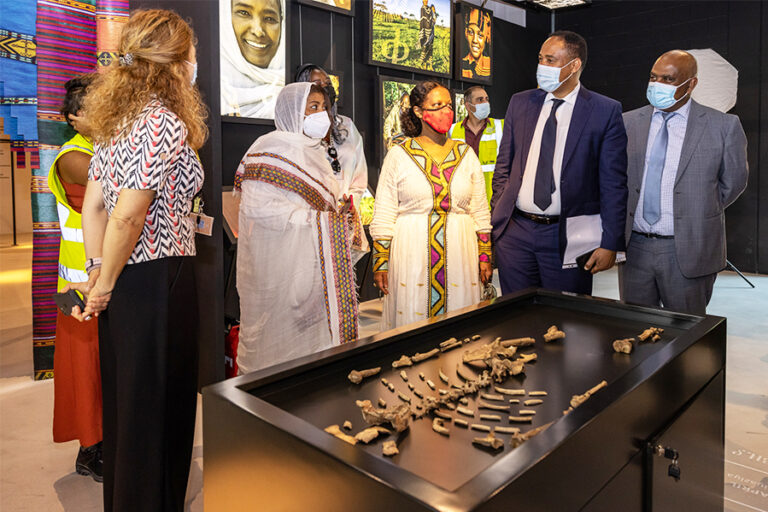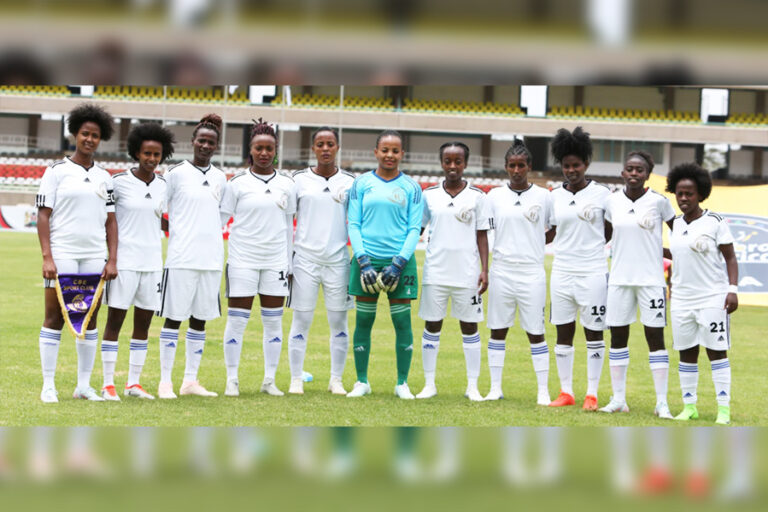Ethiopia is set to shine at Expo 2020 Dubai with millions of visitors expected to visit its pavilion during the event’s six-month long celebration of the best humanity has to offer.
Under the theme ‘Land of Origins and Opportunities’, the pavilion will showcase the economic potential of Africa’s second most populous country and its ongoing role as a living hub driving and facilitating connections between the African continent and the world.
Throughout its history, Ethiopia has successfully maintained its originality, culture and values – all qualities that will be on display during the 182 days of Expo.
For the first time in the 170-year history of World Expos, every African nation will participate, each with its own pavilion, giving countries such as Ethiopia an unprecedented opportunity to engage in dialogues to overcome the common challenges facing humankind and forge new relationships with the rest of the world.
Visitors to the Ethiopia Pavilion will embark on a journey that begins — as humankind’s did — in a dim cave, where they will meet a replica of Lucy the oldest human fossil ever discovered. The discovery of the 3.2-million-year-old Australopithecus in 1974 rewrote the history of human evolution and earned Ethiopia the reputation of being the “cradle of humanity”.
After highlighting the country’s cultural richness, heritage, arts and ethnic diversity, the journey culminates in the vibrant present focussing on Ethiopia’s strengths in sectors such as agro-industry, manufacturing, mining and power generation. To cap off their journey, visitors will be welcomed to a classic Ethiopian coffee ceremony.
The first World Expo ever held in the Middle East, Africa and South Asia (MEASA) region has as its theme ‘Connecting Minds, Creating the Future’ based on the belief that innovation and progress are the result of people and ideas coming together in inspiring new ways.
The Ethiopia pavilion is situated in the Sustainability District, one of Expo 2020’s three Thematic Districts. Expo 2020’s subthemes of Opportunity, Mobility and Sustainability go to the heart of Africa’s future aspirations: ensuring jobs, education and healthcare for all; offering easy and equitable access to transport and ideas; and balancing development with preserving the environment for future generations.
A total of 191 countries will take part in a Expo 2020 – a 182-day celebration of breakthrough ideas, innovations and technologies that are shaping the future of our planet.
As one of many firsts at Expo 2020, the African Union will host its own pavilion. The pavilion promises to be a colourful arena devoid of national borders that will highlight the continent’s vast potential and ambitions, reflected in its Agenda 2063 aspirations that address agriculture, transport, science and technology, and health.
Visitors to Expo 2020 will also be able to enjoy the flavours of Africa at Alkebulan, a unique dining hall where seven of the world’s top African Chefs blaze a trail for the continent’s diverse cuisine. Ethiopian injera flat bread will feature at Shoebox Bakery by Mame Sow, which bills itself as the ultimate pan-African bakery experience, spanning both sweet and savoury items.
The youngest, fastest-growing continent on the planet is brimming with promise. How Africa embraces its accomplishments and overcomes its challenges – ranging from the global health pandemic to climate change, sustainable food supply, and equal access to the basic human rights of education, digitalisation and healthcare – will have enormous implications worldwide.
To help overcome these challenges Expo 2020 gives countries such as Ethiopia access to its Global Best Practice Programme which spotlights projects providing impactful, sustainable solutions to some of our biggest challenges. Among the projects being implemented in Ethiopia is the WADI Solar Powered Water Filtration project, which is providing low-cost, solar-based solutions to prevent water-borne diseases.
Another Expo 2020 initiative benefitting Ethiopia is Expo Live, a USD 100 million programme that supports projects offering creative solutions to urgent challenges that impact people’s lives, help preserve the planet – or both. In Ethiopia, Expo Live is funding a tele-medicine programme aimed at overcoming the shortage of medical specialists by helping local radiologists become trainers. The program is being implemented through Ver2, an UAE-based integrated digital medicine services company that uses intelligent computing to solve challenges in the delivery of healthcare.
Many of Expo’s participating nations are eager to widen and deepen their ties with Africa, and Expo 2020 will be a global forum where countries such as Ethiopia can share their plans and achievements, seek investments and solutions to their challenges, as well as forge new relationships across the continent and across the globe.
Expo 2020’s Opening Ceremony on 30 September 2021 will herald the start of this incredible opportunity. From 1 October 2021, the UAE looks forward to jointly lay the foundations for a cleaner, safer, healthier and more prosperous tomorrow. The participation of Ethiopia and other African countries at Expo 2020 can only help bring that exciting, optimistic new future a big step closer.






